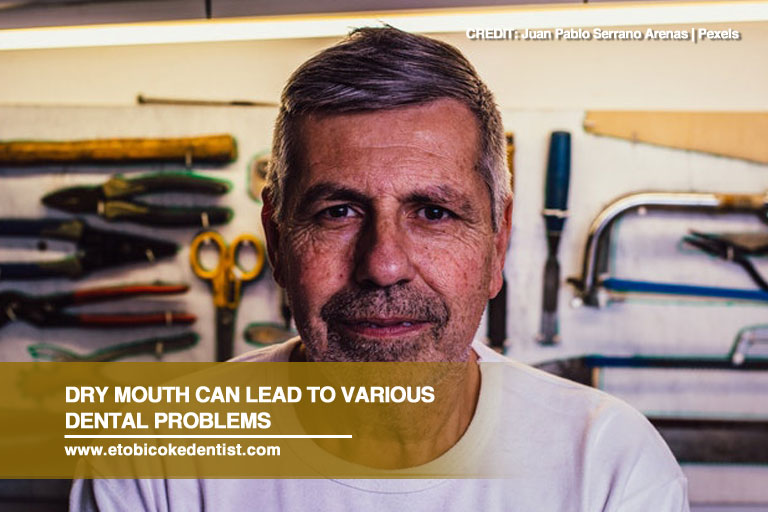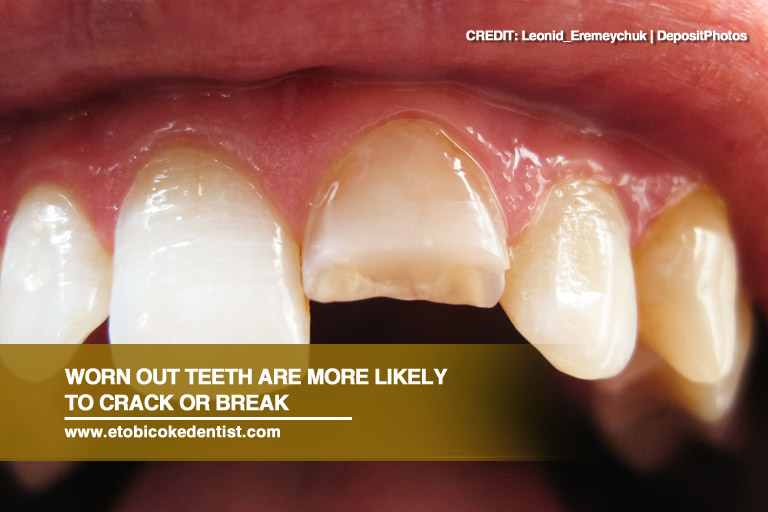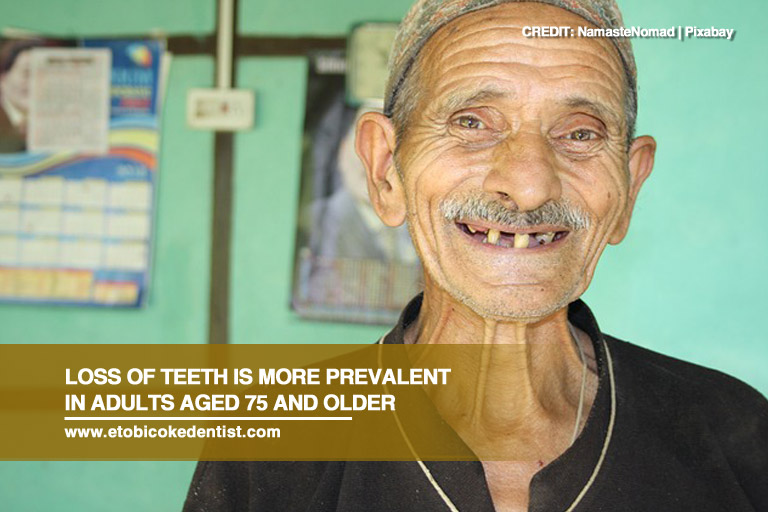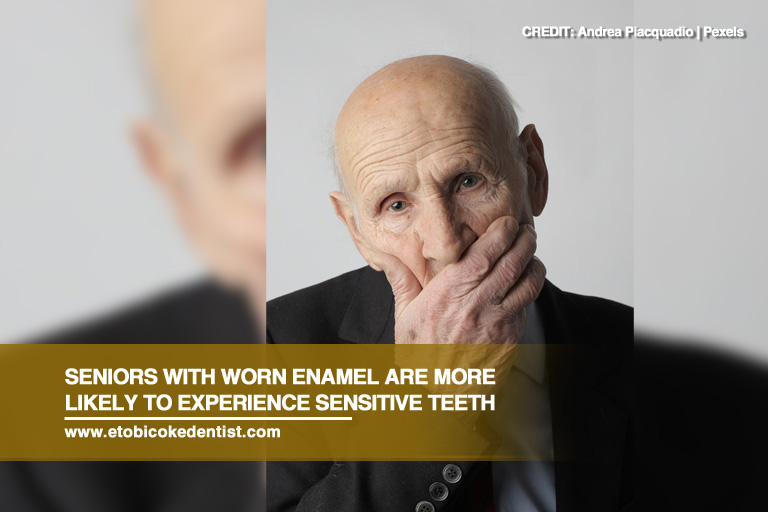
Aging is an inevitable part of a person’s life. The passing years can have a major impact on our body, including your dental health. As you grow older, changes in your teeth and gums become noticeable. Old age can increase the risk of dental problems due to years of wear and tear of your teeth and gums.
As you age, certain changes can take place in your body–slower cell regeneration rate, tissues become thinner and lose their elasticity, bones lose their density, and the immune system comes weaker, increasing your risk of infection, teeth problems, and gum decay. All these changes can affect your oral bones and tissues.
Here are several significant changes in your oral health caused by aging:
- Dry Mouth

As you age, your salivary glands tend to produce less saliva. Medications for high blood pressure, chronic pain, depression, and high cholesterol can reduce saliva production, causing dry mouth. Lack of saliva does not only make chewing and swallowing difficult, but it also causes foul breath, oral bacterial growth, cavity formation, and tooth decay. Furthermore, mouth dryness can also result in premature teeth wear. Other causes include caffeine and alcoholic drinks, and tobacco smoking.
Drinking water regularly and chewing sugarless gum can effectively prevent dry mouth by stimulating healthy saliva production.
- Wear and Tear

Teeth are naturally strong, but they are not indestructible after years of chewing, shredding, and gnashing, which can be aggravated by poor habits that harm teeth. Over time, everyday wear and tear can cause tooth enamel loss, resulting in brittle teeth. When teeth become weakened, they become susceptible to cracking and breaking.
While it is simply impossible to stop the natural wearing of your teeth, there are several things you can do to control its impact and prevent other dental problems. Brushing your teeth twice daily, flossing, and mouthwash rinses help ensure healthy teeth and gums. Fluoride toothpaste can also effectively rebuild tiny enamel crystals and prevent harmful bacteria from attacking the gums and roots of the teeth.
- Teeth Discolouration

Old age can cause the teeth to change their natural colour. As the enamel wears down, it shows the yellowing of the dentin, giving the teeth a discoloured appearance. Staining of the teeth can also be caused by drinking coffee, tea, and wine. These drinks contain acids that can result in the discolouration of the teeth.
While you can buy OTC teeth whitening solutions, such as whitening toothpaste, whitening strips, and dental bleaches, these products are less effective in older people. Before you use any teeth bleaching agents, talk to a trusted dentist. Some of these products contain hydrogen peroxide that can contribute to teeth sensitivity. Also, their effectiveness may depend on what caused the discolouration.
- Shifting Teeth
Age can make your teeth shift gradually due to the weakened bones in the upper and lower jaw. As the bones weaken, it causes the teeth to shift inwards and turn. Luckily, old age does not cause drastic shifting of the teeth, and it can be fixed with non-invasive habittreatment or orthodontic care devices. Braces or Invisalign can prevent teeth from shifting out of place to correct the problem.
Gum recession, wobbly teeth, and jaw deterioration caused by periodontal disease can also contribute to shifting teeth. While periodontal disease affects both young and older adults, the symptoms can worsen with age.
- Tooth Loss

Many people lose their teeth due to oral injury, tooth decay, or gum disease. In most cases, the risk of tooth loss increases with age. When you start losing your teeth, you lose the bone density in your jaw eventually. Over time, this can result in facial collapse, which can be corrected with dental implants to prevent further bone resorption in the jaw.
- Gum Problems
Receding gumline is a common dental problem experienced by older people. As you grow older, the tissues of your gums start to pull away from your teeth, eventually exposing the root. This allows bacteria to easily enter thrive in the exposed area, increasing your risk of tooth decay and inflamed gums. Another common cause that makes you more susceptible to receding gum in old age includes brushing your teeth too hard.
Gingivitis is a less severe type of gum disease caused by plaque and tartar buildup, which leads to the irritation and inflammation of the gums. On the other hand, untreated gingivitis can turn into periodontitis, a severe form of gum disease that causes premature loss of teeth. Older people suffering from certain conditions and diseases can make them more prone to periodontal disease.
- Poor oral hygiene
- Not getting regular dental health care
- Smoking
- Compromised immune system
- Smoking
- Diabetes
- Dry mouth
- Sensitive Teeth

Aging can put you at risk of developing tooth sensitivity. Since your gum recedes over time, it leaves the sensitive part of the tooth that is not protected by the enamel to be exposed. While using an anti-sensitivity toothpaste helps, persistent sensitivity could indicate a more serious condition, such as a fractured or cracked tooth.
- Oral Cancer
The risk of developing cancer of the mouth, jaw, throat, and tongue could increase with age, making regular dental screenings more essential as you get older. Early detection of oral cancer symptoms makes it easier for the healthcare professional to treat the condition. Pain and other symptoms of mouth cancer are not usually apparent during its initial stage. Various dental health reports claimed that the prevalence of oral cancer is common in people aged 62.
Other signs and symptoms you should watch out for include open sores, changes in the colour, sensitivity, and size of your gums, mouth linings, tongue, and lips, reddish or white patches in your mouth. Consult a reliable dental health professional as soon as possible if you notice any of these oral cancer symptoms.
Luckily, there are many things you can do to keep your smile bright and healthy despite old age. You simply have to keep up with proper hygiene routine and visit your dentist twice a year or as often as you need to. Keeping a great-looking smile for life also means having a better understanding of the potential dental risks that come with aging. The most effective way to keep your mouth, teeth, and gums healthy for a lifetime is by working together with your dentist in keeping oral health problems at bay as you age.
Let Dr. Mark Rhody Dentistry be your dental health partner in taking care of you and your family’s dental health. We offer comprehensive and exceptional dental services to ensure that your mouth, teeth, and gums remain healthy for life. Call us today at (416) 231-4281 to book an appointment with us for your family’s dental needs.
